Mozambique: Brazil’s President Lula to visit after G20 summit in South Africa
Hidden debts: “It would be irresponsible if Guebuza had no contact with the negotiators” – Elísio Macamo

FILE: Former President Armando Guebuza, . [File photo: DW]
“There is a matter pertaining to the institutional and political forum which needs to be reflected upon and yet is not because everyone is busy celebrating the fact that corrupt persons have been discovered,” Elisio Macamo tells DW.
Over the course of last week, it was revealed at the Brooklyn Court in New York that former Mozambican President Armando Guebuza exchanged telephone messages in 2016 with Jean Boustani, the Privinvest negotiator currently on trial in the United States.
Interviewed by DW, Mozambican sociologist Elísio Macamo says that the dialogue between Armando Guebuza and Jean Bousatani revealed in the US Court, where the trial of a case of financial crimes related to hidden debts is taking place, is not surprising, since the hidden debts were a Mozambican state initiative. Regarding the apparent intimacy between Guebuza and Privinvest negotiator Boustani, the academic argues, among other things, for the need for trust in a business context.
For Elísio Macamo, this case, rather than exposing corruption, reveals the fragility of state institutions and, therefore, he warns, lessons, rather than speculation, should be drawn from it.
DW Africa: You consider it normal for Armando Guebuza to be mentioned in court evidence. Why?

Elísio Macamo (EM): I think it is not surprising, because it was a state business, after all. It would be strange if the President of the Republic had no contact with the people with whom he was negotiating.
We should recall that these companies were created, not by private initiative, but at the initiative of the state. And regardless of the ulterior motives that might have been behind the creation of these businesses, it would be unreasonable that the head of state, who later secured these debts, had no contact with the people who proposed this deal and with whom it was being negotiated.
It is not surprising and it will not be surprising if it becomes known that the former Defence Minister [Filipe Nyusi] had contact with several people on this subject.
ALSO READ: Former president Guebuza mentioned in Boustani trial – AIM report
DW Africa: Is the apparent relationship of intimacy between the former President and Jean Boustani something to be highlighted, in your opinion?
EM: No. It is a little difficult to answer this question for two reasons. One is that the proximity that appears to be documented and which has been presented [in the Brooklyn court], may suggest a relationship which undermines the thoughtful and objective treatment of the matter they were negotiating.
We always have the expectation that decisions of this nature cannot be made on the basis of friendly relationships. It is possible that the proximity they had made the business easier.
But on the other hand, and this is the second reason, it is only natural that, when doing business, especially a business that has been kept secret for reasons that they have presented in due course, there is a strong need for trust between the parties. It is not possible to enter into business without trust and that trust can often lead to some intimacy. In this case, it is true, there is a strong reason why we are concerned, because as everything was done secretly, there was no possibility of obtaining a third opinion regarding the business.
This is an institutional weakness in Mozambique that is being repeated again now with these gas deals in Cabo Delgado, where the government has practically made the decision on its own, without obtaining the advice of society through an open discussion about the nature of this business.
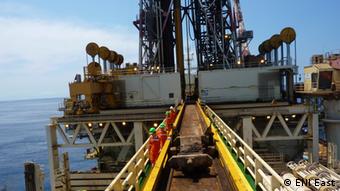
DW Africa: Wouldn’t the argument or justification of preserving state interests and sovereignty be valid in this case?
EM: That’s a very serious problem, but I wouldn’t immediately rush into what some people do, which is to assume that this issue of defence and security required secrecy for them be able to steal and that everything was a subterfuge. I wouldn’t do that because it limits our ability to perceive all the contours of the matter.
I think that, even in circumstances where the business is defence and security, and therefore requires secrecy, it should be possible to create mechanisms that enable the decision, whatever it is, to be taken objectively. There is a whole issue of the institutional and political forum that needs to be reflected upon. But it is not, because everyone is busy celebrating the fact that corrupt persons have been uncovered.
DW Africa: Documents filed in the Brooklyn Court indicate that Armando Guebuza continued to follow the movements of the three companies involved in hidden debts, even when he was no longer President of the Republic. Was there any legitimacy to do so?
EM: Of course! Because all responsibility lies with him. I think everyone would be surprised if, from the moment he ceased to be president, he washed his hands completely and said that he is no longer interested, especially in a case with such serious consequences for the country. Now the question that should be interesting to check is whether he did this in liaison with the government, if he was in dialogue with his successor. If he has not done it in this way it is serious. That would be a certain lack of responsibility and a lack of respect towards his successor.
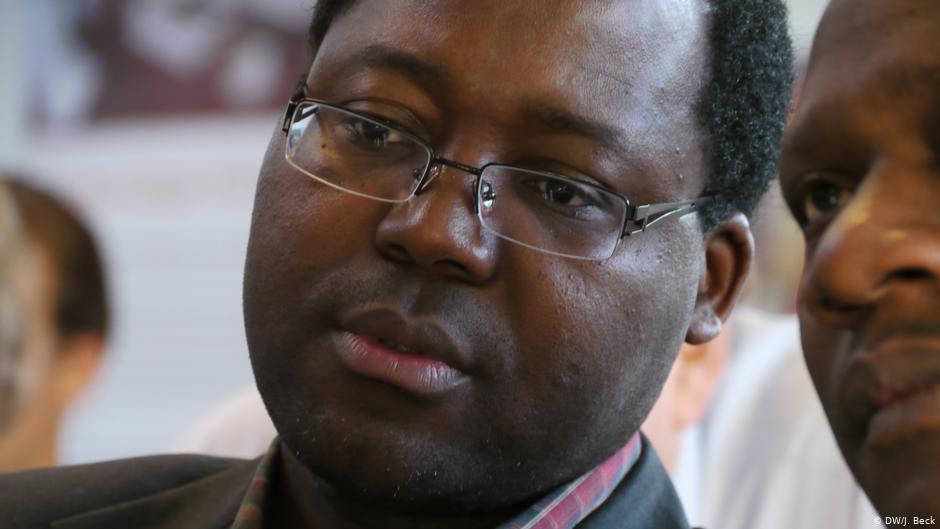
DW Africa: Armando Guebuza’s continued interest in the case, after leaving the presidency, is seen as an attempt to avoid default and, in this way, prevent his son from being discovered. Is this suspicion close to perversion or does it make sense?
EM: This is an interpretation that is part of an approach that some people have on this subject that seems to me to be extremely problematic. These are already criminal issues and have little to do with the interest this case should have at the political level. And this has more to do with what kind of lessons we should draw from this case, and what kind of institutional arrangements we should make so that the country is not vulnerable to these kinds of things, which is the most interesting.
Now, wanting to know how involved the son is, what he has tried to do to protect him, and so on, I do not see the usefulness of this kind of speculation, not least because these matters are being dealt with in court. The country should be more concerned about what lessons to draw from this situation. And the worst lesson that can be learned is that this is a case of individual greed!
It is an institutional case and it is also a case of our country’s vulnerability to the international financial system. It is a problem of the Frelimo party that clearly has no control mechanisms, it is a problem of the Mozambican society which practically nourishes institutions financed by external bodies to reproduce and copy a discourse which has no use for the country.
ALSO READ: Frelimo’s silence on $10 million transfers from Privinvest subsidiary – Savana
DW Africa: Evidence is being presented that there has been corruption and other illicit situations in this case. Do you think Armando Guebuza was “framed” by his middlemen or was he aware that there could be schemes such as might have happened?

EM: There is an argument which certain people like to present, which is to say that in this type of business there are always commissions. This may be true to some extent, but this may not be the starting point for analysing this case. The starting point is the rationality behind it. And this rationality has to do with what the government and President Guebuza said about the promotion and protection of the national interest in the field of defence, etc.
Now, in any business there is always the possibility of the illicit use of a situation. It is not normal, and it is not justified because of that, but it can happen too. It can happen even with the boss’s own assent, therefore of the president himself, or it can happen in his absence [without his knowledge or authorisation].
What we should be concerned about is how was this possible and what role did the pursuit of personal benefit play so that precautions were not taken in the conduct of this business. It would be a great insult to the intelligence of Mozambicans to assume that this business was done by people who just wanted to fill their pockets, and that makes no sense except to those who only have the issue of corruption and greed in their heads.
But for those who want to understand the challenge of developing a country like Mozambique, it cannot constitute a starting point [of analysis]. What vulnerabilities this business reveals about the Mozambican state, the country, the party, Mozambican society, and what this imposes as a political and institutional agenda: what is to be learned from it. Everything else is a pure waste of time.
ALSO READ: Hidden debts: Frelimo available to explain to court – spokesman


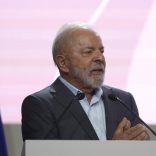

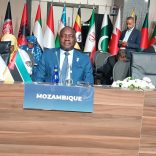

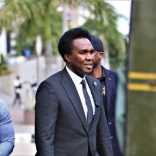





Leave a Reply
Be the First to Comment!
You must be logged in to post a comment.
You must be logged in to post a comment.